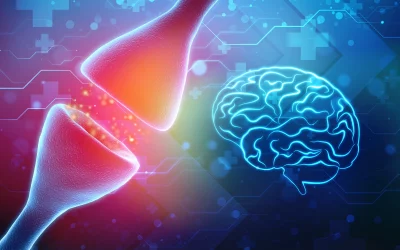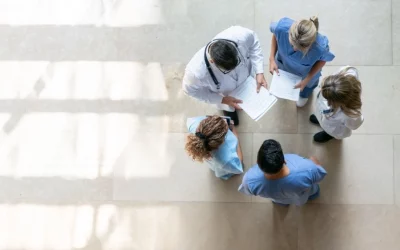WHAT IS THE DEFINITION OF A TRAUMATIC BRAIN INJURY (TBI)?
A traumatic brain injury, or TBI, may occur when there is a blow to the head. A piercing injury, such as a gunshot wound, or a non-penetrating injury, such as getting hit in the head in a car accident, are both possible.
The degree of traumatic brain damage varies. Many individuals recover from TBIs in a matter of days, but more serious cases may result in lasting brain damage or even death.
WHO IS AT RISK OF SUFFERING A TRAUMATIC BRAIN INJURY (TBI)?
A TBI may happen to anybody, although men account for roughly 80% of all TBIs. TBIs are more prevalent in adults over the age of 65. This age group has a higher risk of losing their balance, falling, and striking their skulls. TBIs may occur in newborns due to occurrences such as falling from a bed or changing tables or, more rarely, maltreatment.
TBIs are more common in those who work in specific occupations or engage in certain hobbies, such as:
Athletes (both recreational and professional). Construction workers, military personnel and police and law enforcement officers are examples of people who work in the construction industry.
WHAT IS THE PREVALENCE OF TRAUMATIC BRAIN INJURIES (TBIS)?
In the United States, traumatic brain injuries are a primary cause of disability and death. The most recent data from the Centers for Disease Control and Prevention (CDC) comes from 2014. TBIs were responsible for about 3 million emergency room visits, hospitalizations, and fatalities in that year.
TBIs claimed the lives of more than 54,000 adults and 2,500 children in that year. What forms of traumatic brain injuries (TBIs) are there?
Several variables influence the severity of a head injury, including loss of consciousness, specific neurological symptoms that occurred at the time of the accident, loss of memory for the accident and the period leading up to it, and abnormalities on a head CT or brain MRI.
TBI is classified into numerous kinds and grades:
Mild concussion (mTBI)
The most prevalent kind of TBI is a concussion. Concussions account for three out of every four TBIs each year. Brief modifications of consciousness, such as feeling “dazed”
or losing consciousness for less than 30 minutes, are examples of mTBIs. Confusion may last up to one day in those who have had a TBI, distinct from difficulty with concentration or memory.
MODERATE TBI
This form of brain injury causes a loss of consciousness lasting more than 30 minutes but less than a day. You may be confused for up to a week.
Severe TBI
Those who suffer from this form of brain injury lose consciousness for more than a day. These injuries are often linked to abnormalities on a head CT scan or a brain MRI.
UNCOMPLICATED TBI
Head CT and MRI scans are normal, regardless of whether the TBI is mild,
moderate, or severe.
SEVERE TBI
Head CT or brain MRI changes, such as bleeding, are seen.
CLOSED
The majority of TBIs are closed. A closed TBI occurs when an external force strikes the head
but does not pierce the skull. The brain gets injured and swells as a result of the collision.
PENETRATING TBI
Healthcare practitioners may refer to open TBI as a penetrating TBI. When a bullet, knife, or other object pierces the skull, this damage occurs. If the item enters the brain, it causes immediate damage to brain tissue.
HYPOXIC/ANOXIC BRAINDAMAGE:
Also known as a nontraumatic brain injury. Some TBIs are not caused by trauma. They may be caused by strokes, convulsions, choking, and near-fatal drownings, among other things. The brain may be deprived of oxygen as a result of several events (cerebral hypoxia).
CAUSES AND SYMPTOMS of TBIs
A VARIETY OF FACTORS CAUSES A TRAUMATIC BRAIN INJURY (TBI
When you get a violent, severe blow to the head, your brain may adjust its chemical and energy use to adapt to the damage. Headaches, light/sound sensitivity, and disorientation are all possible side effects of these alterations.
These alterations are temporary and do not injury the brain permanently in mild TBIs. On the other hand, more severe injuries may cause these alterations to linger longer and result in brain cell destruction.
The brain may grow and expand within the skull as a result of these processes. The swelling has the potential to cause much more brain injury.
A variety of factors causes tBIs. What are the most common causes of TBIs?
TBIs caused by falls account for almost half of all emergency room visits. TBIs caused by falls are more common in those over the age of 65 and in children under 17.
- Domestic violence,
- assaults,
- child abuse,
- shaken infant syndrome,
- gunshot wounds, including attempted suicides;
- motor car accidents;
- and sports, recreational, work, or
- military injuries are among the others.
What do the signs and symptoms of a traumatic brain injury (TBI) look like?
Symptoms of a traumatic brain injury vary depending on the severity of the damage. After a blow, loss of consciousness (passing out) is a critical indicator. Some individuals get dizzy for a few minutes, while others become unresponsive for lengthy periods (coma or persistent vegetative state).
Mild TBIs may cause various symptoms, most of which appear shortly after the head injury or in the days that follow. People may not realize how serious a symptom is until they return to school or jobs.
- Changes in behavior or mood are signs of a TBI. Perplexity or memory issues.
- Seizures or convulsions
- Blurred eyesight or dilated pupils. Feeling dizzy, fainting, or tired.
- Headaches.
- Nausea and vomiting are common side effects. Anxiety or restlessness.
- Light and scent sensitivity
- Sleeping excessively or insufficiently. Speech that is slurred.
- Be inconsolable, sobbing incessantly for infants and children with TBIs.
- Refuse to eat, drink, or feed your baby.
What are the signs and symptoms of a traumatic brain injury (TBI)?
Your doctor will examine you and inquire about your symptoms. They’ll also want to know what happened to trigger the injury. You may have the following symptoms, depending on the degree of your injuries and symptoms:
Neurological examination: A neurologist (brain expert) examines your memory, reasoning, motor function (balance, reflexes, and coordination), and sensory functions (hearing and vision).
Imaging tests: A CT scan or an MRI is used to look for bleeding and edema in the brain.
Blood test: The Banyan Brain Trauma IndicatorTM (BTI) examines your blood for proteins that signal a concussion or moderate TBI.
WHAT IS THE BEST WAY TO MANAGE OR TREAT A TRAUMATIC BRAIN INJURY (TBI)?
TBIs that are mild to moderate may need modest therapy. Your treatment may need a brief break from sports, school, or job. Within a few weeks, your symptoms should improve.
People with severe TBI typically need hospitalization and more intensive therapy. Treatment options for all TBI grades include:
Emotional help via counseling. Many people are concerned about their recovery and are stressed. They may discover that returning to work and hobbies is more challenging than they imagined. As a result, counseling is often beneficial when used in combination with other medical therapies.
Surgery to cure intracranial bleeding (intracranial hemorrhage) or to relieve pressure caused by brain swelling.
Physical, occupational, and speech therapy are all part of the rehabilitation process.
Rest. Consult your doctor about how long you should rest after a TBI. Some people may need to relax for 1 to 2 days after a TBI before returning to normal activities. More serious head injuries may need more rest.
Get back to your routine. People with lesser head injuries may have greater difficulty returning to work, school, and other activities such as socializing and hobbies if they rest for too long following their brain injury. Returning to activities too soon after a more serious injury might exacerbate symptoms. Consult your physician for particular advice.
The goal of treatment is to reduce your symptoms and improve your quality of life. Some consequences may improve over time — even years in the case of more serious head traumas.
WHAT ARE THE EFFECTS OF A TRAUMATIC BRAIN INJURY (TBI) ON THE BODY?
TBIs that are moderate or severe may result in long-term brain damage and disability.
Anxiety, sadness, and post-traumatic stress disorder are all more common in those with a TBI (PTSD).
A bleed on the brain. Convulsions (epilepsy).
Severe head injuries or a history of moderate to severe TBIs may raise a person’s chance of acquiring Alzheimer’s disease, dementia, or mobility difficulties later in life in rare situations. This is unlikely to happen with a moderate TBI, which is reassuring.
Finally, CTE (chronic traumatic encephalopathy) may develop. This is a condition that occurs when someone, such as a professional athlete, has received several strikes to the head over a long time. This disorder is currently in the early phases of study and is becoming better understood. Currently, this illness can only be detected by autopsy of brain tissue.
WHAT CAN I DO TO AVOID SUFFERING A TRAUMATIC BRAIN INJURY (TBI)?
MANY TBIS ARE UNAVOIDABLE
They occur unexpectedly as a result of an accident or a fall. However, you may take the following actions to prevent some of the most prevalent situations that result in TBIs:
KEEP AN EYE ON YOUR MEDICATIONS
Request a review of your prescription and over-the-counter drugs, including supplements, with your doctor or pinjuryacist. Make sure you’re aware of which ones might make you dizzy, tired, or more prone to falling. It’s possible that you’ll be able to switch drugs.
MAINTAIN A CLEAR VISIO
Regular eye examinations can ensure that you can see well enough to
AVOID FALLS AND ACCIDENTS
Make sure your house has enough lighting to illuminate the path.
Fall-proof your house by removing tripping hazards such as rugs. Handrails for the stairs and grab bars for the bathtub should be installed.
Install window guards on high windows and stair safety gates if you have little children. Keep an eye out for underfoot toys and pets.
BE A WISE DRIVER WHILE YOU’RE BEHIND THE WHEEL
Use seat belts for everyone and car seats or booster seats for youngsters. If you’re sleepy or under the influence, don’t drive.
WEAR A HELMET
When you play sports like hockey or football, or when you cycle, skate, ski, or snowboard, wear a helmet. When riding a motorcycle, scooter, ATV, or horse, always wear a helmet.
STAY ACTIVE
Yoga, tai chi, and strength training help you develop muscle and improve your balance.
USE A WALKING AID
Canes and walkers might help you stay more stable on your feet. What is the prognosis (prognosis) for those who have had a traumatic brain injury (TBI)?
After a TBI, recovery is very individualized. The degree, cause, and kind of injury all have a role. Mild TBIs are likely to rehabilitate and return to pre-injury functionality in a matter of days to months.
SOME PATIENTS WITH MILD TBIS ARE UNCONCERNED ABOUT THEIR CONDITION AND NEVER SEEK THERAPY
Changes in thinking and behavior might be more challenging for those with moderate to severe TBIs. Severe TBIs may alter a person’s life for the rest of their life.
MANY DIFFERENT CIRCUMSTANCES MIGHT INFLUENCE A PERSON’S REHABILITATION
Additional injuries: Individuals may have additional injuries in addition to their TBI. A person who has been in a car accident, for example, may have a TBI as well as a shoulder injury.
In these conditions, a person may have extra pain or therapy requirements for the other injury. This may add to their stress as they adapt to the changes brought on by their brain damage and physical ailments.
AGE: OLDER PEOPLE HEAL AT A SLOWER RATE THAN YOUNGER PEOPLE.
Previous TBIs: People who have experienced several head traumas in a short time may have a harder time recovering. This is not always the case, and people who have had many mild TBIs and have recovered entirely may still recover well from subsequent head injuries.
Stress: People who undergo emotional upheavals and stress due to a brain injury have a harder time healing. Physical symptoms might also mimic emotional problems. Working with your doctor to
ensure that physical symptoms linger longer than expected without emotional issues is critical. Counseling and drugs are both successful in resolving these symptoms, which is reassuring.
Support: People with significant family and friend support may recover more quickly from mild to moderate TBIs.
When should I get medical attention for a traumatic brain injury (TBI)?
If you have any of the following symptoms, you should contact your healthcare provider: Confusion or a lack of memory.
- Pupils that are dilated.
- Excessive tiredness or difficulty getting out of bed. Excessive irritability or mood swings
- Suffering from a loss of awareness.
- Nausea and vomiting are common side effects. Convulsions or seizures.
- Severe headache that doesn’t go away or becomes worse.
What traumatic brain injury (TBI) questions should I ask my doctor?
How serious is my TBI? This is a question you should ask your healthcare practitioner. What is the best course of action for me?
When should your symptoms start to improve? What can I do to avoid more brain injuries?
Should I be on the lookout for indicators of complications? Cleveland Clinic’s message
Even if you don’t believe the hit was significant, your healthcare professional should examine for any form of head or brain damage. TBIs may lead to immediate problems. However, it is conceivable to have slight brain damage and be completely unaware of it.
Knowing what indications to watch for might help you obtain the medical attention you need. Severe TBIs may result in physical, behavioral, and mental health issues for the rest of one’s life. Your provider can help you and your family find recovery resources. Anxiety and depression are common side effects of a TBI. Medication and therapy may help.
EFFECTS OF INJURY
Because severe traumatic brain injuries often need long-term care and treatment, they may have devastating consequences for the afflicted and their families. TBIs have the potential to shift obligations and destroy relationships in an instant and for the rest of one’s life. After a serious traumatic brain injury, life will never be the same again.
No one is ever prepared to cope with the aftermath of a serious traumatic brain injury, whether it occurs to oneself or a family member.
Fear and urgency that develop at the moment of the injury, ambiguity, and uncertainty that arise after it is obvious that the damaged person will live, and worry and stress that arise as affected parties cope with the long-term implications of the injury all throw great strains on the whole family.
FOR IMMEDIATE ASSISTANCE, CONTACT A COLORADO SPRINGS PERSONAL INJURY ATTORNEY
If you’ve had a traumatic brain injury, you’re well aware of the challenges you’ll encounter in your rehabilitation. Contact the experts at The Warrior Car Accident Lawyers, for help protecting your rights and get a free consultation.
We’ve worked on behalf of clients who have suffered this sort of damage before, and we’ll fight to get you the compensation you deserve. Call us at 719-300- 1100 or send us an email.
Warrior Car Accident Lawyers
1902 W. Colorado Ave., Suite 100
Colorado Springs, CO 80904












